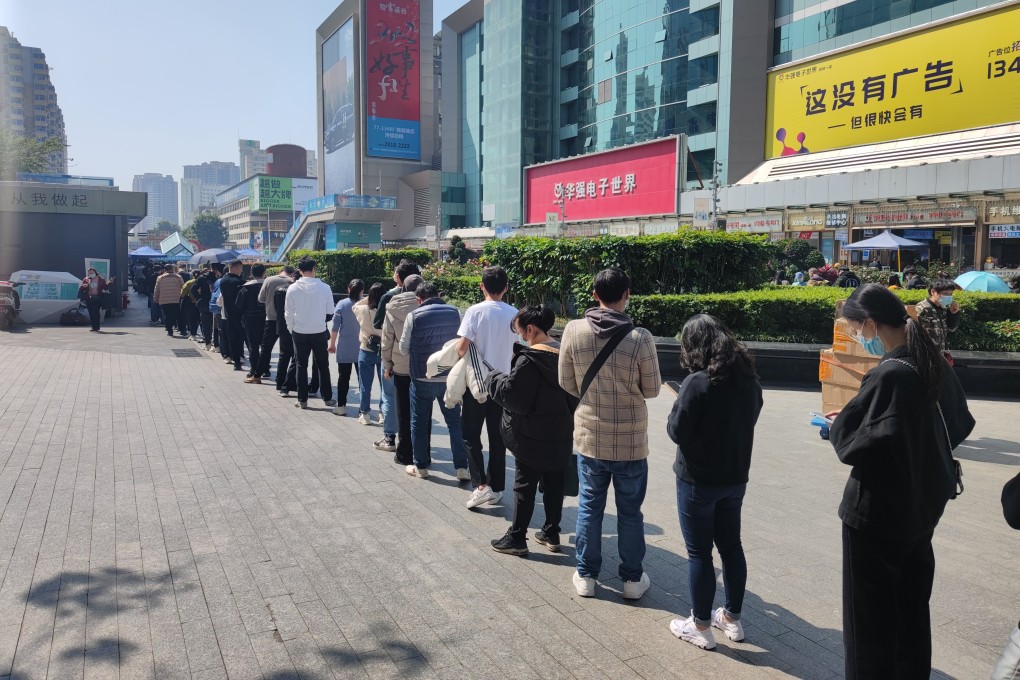Advertisement
Coronavirus: rumours and fears as China tech hub Shenzhen under pressure to contain outbreak
- Cross-border truck drivers under closer scrutiny with revised testing rules
- More than 100 cases detected, most among close contacts of confirmed patients
2-MIN READ2-MIN
5

As new coronavirus cases reach fresh highs in Hong Kong, the neighbouring city of Shenzhen is also feeling the pressure to contain its worst outbreak fuelled by a new Omicron sub-variant.
To help prevent transmission, Shenzhen has put cross-border drivers under greater scrutiny.
From Tuesday, drivers must show a negative nucleic acid test result from within the previous 24 hours and undergo two further tests upon entering.
Advertisement
Those testing positive at the border will not be allowed in for 21 days. Those allowed in will be restricted to a “closed loop” and not permitted to enter any communities or public places in the mainland.
Last week, Shenzhen announced it had punished 882 truck drivers who violated the rules by suspending their exemptions from entry quarantine for 60 days or permanently cancelling them.
Advertisement
Advertisement
Select Voice
Select Speed
1.00x